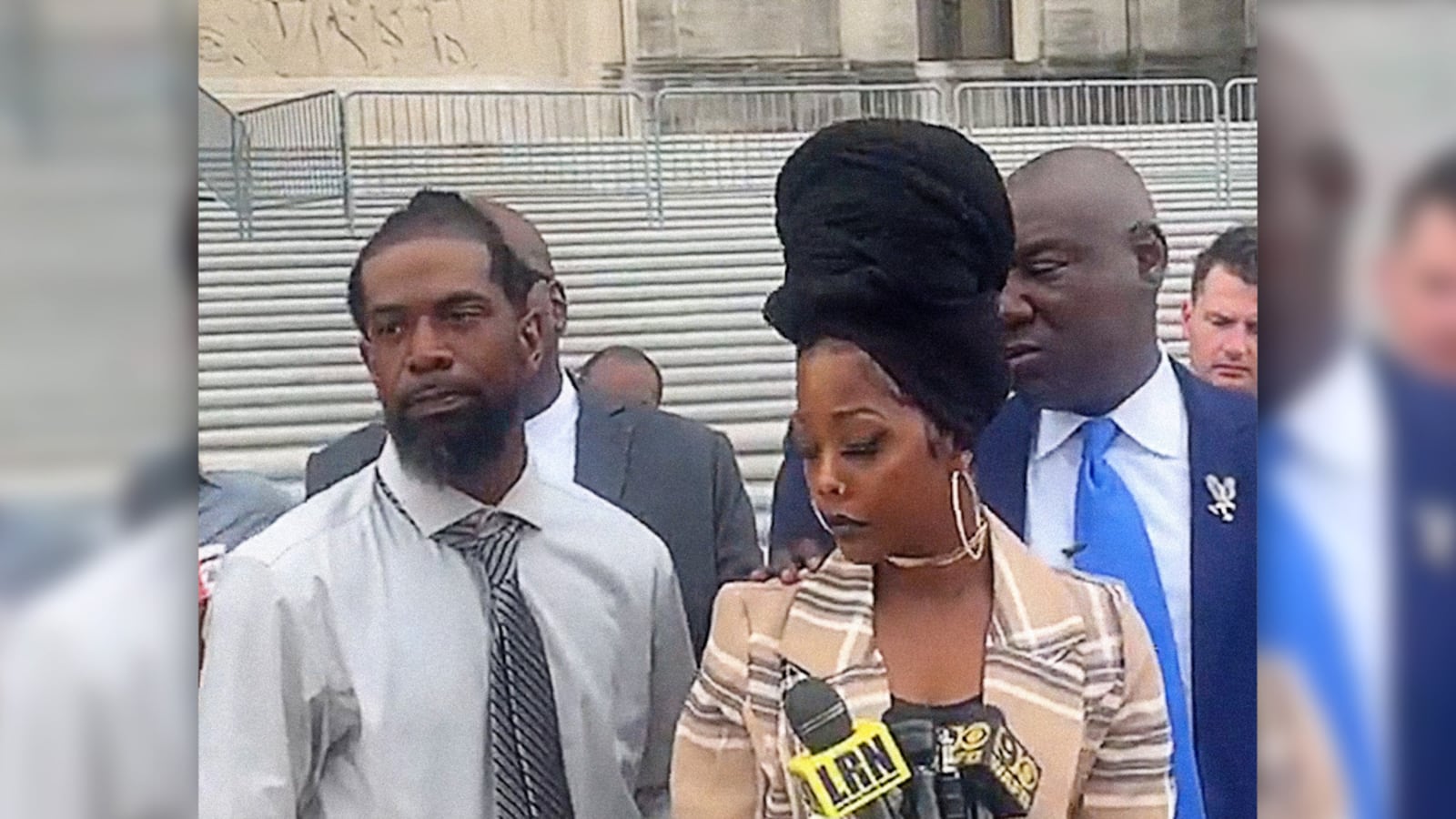Nancy Davis has been through hell, and she wants lawmakers to do something about it—if only to spare other women the nightmare she is still navigating.
The 36-year-old from Louisiana discovered at around 10 weeks of pregnancy that her fetus was afflicted with a rare and fatal condition called acrania, which means it effectively has no skull, and no chance of survival. But she was unable to get an abortion, she and her lawyers have said, because health professionals were terrified of running afoul of harsh anti-abortion legislation in her home state.
That has made her something of a symbol for the absurd patchwork of alleged exceptions to abortion bans that often leave women in danger in post Roe v. Wade America. On Friday, Davis and her attorneys demanded the Democratic governor in the state, a stronghold of anti-abortion extremism, call a special session to clarify exceptions that save lives.
“I had to carry my baby to bury my baby,” she said at a press conference, echoing a refrain that has made her disturbing predicament a source of outrage across the country.
Like many other conservative states, Louisiana had a so-called trigger ban in effect before Roe was overturned by the U.S. Supreme Court in June. Coupled with other measures blocking access to abortion, that have left medical professionals in the state—the people who face prosecution under such laws—unwilling or unable to help women whose pregnancies are doomed, or who may be in danger of serious health problems.
It is a phenomenon that has played out across the country in the months since the ruling, but one that is all the more remarkable in the case of a Black mother of three who is already facing systemic inequality. Davis’ attorney, civil rights lawyer Ben Crump, best known for representing victims of police brutality, made that case alongside Davis on Friday.
“This law is not only racist, it’s classist,” he told reporters.
Lawmakers in the state have rushed to clarify that Davis’ case should, in fact, be exempt under a patchwork of ostensible protections for cases that are “medically futile.” But she will be seeking an abortion elsewhere in the coming days, having lost faith in the ability of doctors in her home state to protect her.
In the interim, Davis left those concerned about the fate of reproductive health care in America with a gut punch.
“I want you to imagine what it has been like to continue this pregnancy for another six weeks after this diagnosis,” she said. “This is not fair to me and it should not happen to any other woman.”






